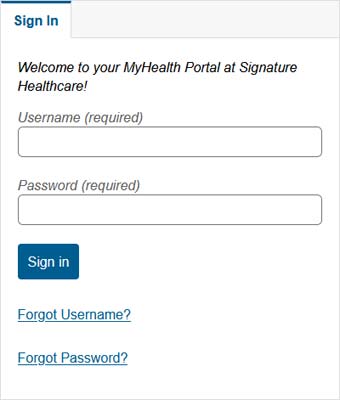Healthcare is an ever-evolving field, constantly striving to provide better services and outcomes for patients. One such innovation that has gained prominence in recent years is Signature Healthcare. This approach focuses on personalized care plans, leveraging technology to enhance communication and improve patient outcomes.
About Signature Healthcare
Since establishment as Brockton Hospital in 1896, Signature Healthcare has been serving Brockton and its surrounding community for over 125 years. They remain committed to providing essential medical services to everyone in need, regardless of their status or ability to pay.
Signature Healthcare stands as the leading local healthcare provider in Southeastern Massachusetts, delivering top-notch, personalized medical services. The signature organization comprises the esteemed not-for-profit Signature Healthcare Brockton Hospital, recognized for its excellence, alongside Signature Medical Group (SMG), a multi-specialty physician group boasting over 150 physicians practicing across 15 ambulatory locations. Additionally, we proudly house the Brockton Hospital School of Nursing.
Signature Healthcare’s mission is to emerge as the foremost community-based healthcare delivery system in Southeastern Massachusetts, offering a comprehensive spectrum of primary care, specialty care, hospital services, and associated ancillary services in a coordinated manner.
Signature Healthcare Portal

Signature Healthcare is delighted to introduce our cutting-edge patient portal system. This interactive web platform grants our patients complimentary online access to their personal healthcare information.
Through MyHealth, patients can instantly retrieve their laboratory and radiology results, medication lists, allergy information, visit history, and discharge summaries. Moreover, patients can conveniently schedule appointments, request medication refills, view billing statements and outstanding balances, and make electronic payments anytime, from almost anywhere.
The Importance of Healthcare Signatures
Understanding the concept of Signature Healthcare is crucial in appreciating its significance in modern healthcare systems. It signifies a shift towards patient-centric care, where the focus is on delivering tailored treatments and fostering meaningful patient-provider relationships.
Key Components of Signature Healthcare
The key components of Signature Healthcare include personalized care plans, improved communication channels, and leveraging technology to streamline healthcare delivery. These elements work together to ensure that patients receive the best possible care tailored to their unique needs.
Benefits of Signature Healthcare Services
One of the primary benefits of Signature Healthcare is the personalized care plans designed for each patient. By considering individual needs and preferences, healthcare providers can offer more effective treatments and support, leading to improved patient outcomes.
Personalized Care Plans
Signature Healthcare emphasizes the importance of personalized care plans tailored to each patient’s unique needs. This approach takes into account factors such as medical history, lifestyle, and preferences to create a customized treatment strategy.
Improved Patient Outcomes
Studies have shown that Signature Healthcare leads to better patient outcomes, including reduced hospital readmissions and improved overall health. By focusing on preventive care and early intervention, healthcare providers can help patients better manage chronic conditions and prevent complications.
Enhanced Communication
Effective communication is at the core of Signature Healthcare. By fostering open and transparent communication between patients and providers, healthcare organizations can build trust and rapport, leading to better health outcomes and higher patient satisfaction.
Signature Rehab Center

The Rehabilitation Services Department at Signature Healthcare provides both inpatient and outpatient services in Physical, Occupational, and Speech Therapy. Signature offers a variety of options to help you regain functionality and return to your priorities. Their team of experienced therapists is equipped with the skills and knowledge to aid in your recovery from illness, injury, or surgery. Each rehabilitation program is customized to address your specific needs and aspirations.
The Role of Technology in Signature Healthcare
Technology plays a vital role in enabling Signature Healthcare services. From electronic health records (EHR) to telemedicine services and wearable health devices, technology allows for more efficient healthcare delivery and better patient engagement.
Electronic Health Records (EHR)
Electronic health records (EHR) streamline patient data management, allowing healthcare providers to access patient information quickly and securely. This improves coordination of care and enables more informed decision-making.
Telemedicine Services
Telemedicine services enable remote consultations and monitoring, expanding access to healthcare services for patients in remote or underserved areas. This technology also allows for better continuity of care and reduces the need for in-person visits.
Wearable Health Devices
Wearable health devices, such as fitness trackers and smartwatches, allow patients to monitor their health parameters in real time. These devices provide valuable data to healthcare providers, enabling more proactive and personalized care.
Signature Health Lakewood
Signature Healthcare – Lakewood, located in Lakewood, OH, is a facility specializing in drug and alcohol rehabilitation. They offer outpatient addiction treatment, mental health care, and primary care services. These services are available both in person and through telehealth sessions.
Address: 14701 Detroit Ave #620, Lakewood OH, 44107
Phone: (440) 578-8200
Challenges and Solutions
While Signature offers numerous benefits, it also presents challenges, including privacy concerns, integration issues, and the need for training and education. However, with proper safeguards and support, these challenges can be addressed effectively.
Privacy and Security Concerns
The use of technology in healthcare raises concerns about patient data privacy and security. Healthcare organizations must implement robust cybersecurity measures to protect patient information and comply with regulations such as HIPAA.
Integration Issues
Integrating new technologies into existing healthcare systems can be challenging and requires careful planning and coordination. Healthcare organizations must ensure seamless interoperability between different systems to maximize the benefits of Signature.
Training and Education
Healthcare professionals need proper training and education to effectively utilize technology and deliver healthcare services. Ongoing professional development programs can help providers stay updated on the latest advancements and best practices.
Conclusion
In conclusion, Signature Healthcare represents a paradigm shift in healthcare delivery, emphasizing personalized care, enhanced communication, and the strategic use of technology. By addressing individual patient needs and leveraging technological advancements, Healthcare has the potential to improve outcomes and transform the way healthcare is delivered.
FAQs
Q1. What sets Signature Healthcare apart from traditional healthcare models?
Signature Healthcare focuses on personalized care plans tailored to individual patient needs, fostering better outcomes and patient satisfaction.
Q2. Is Signature suitable for all patients?
Signature can benefit patients of all ages and medical conditions by providing tailored treatments and proactive care.
Q3. How does technology enhance Signature services?
Technology enables better communication, remote monitoring, and access to patient data, facilitating more efficient and effective healthcare delivery.
Q4. Are there any privacy concerns with Signature?
While technology plays a vital role in Signature, privacy and security concerns must be addressed through robust cybersecurity measures and compliance with regulations.
Q5. What does the future hold for Signature?
The future of Signature looks promising, with continued advancements in technology and a growing emphasis on accessibility and patient-centered care.

